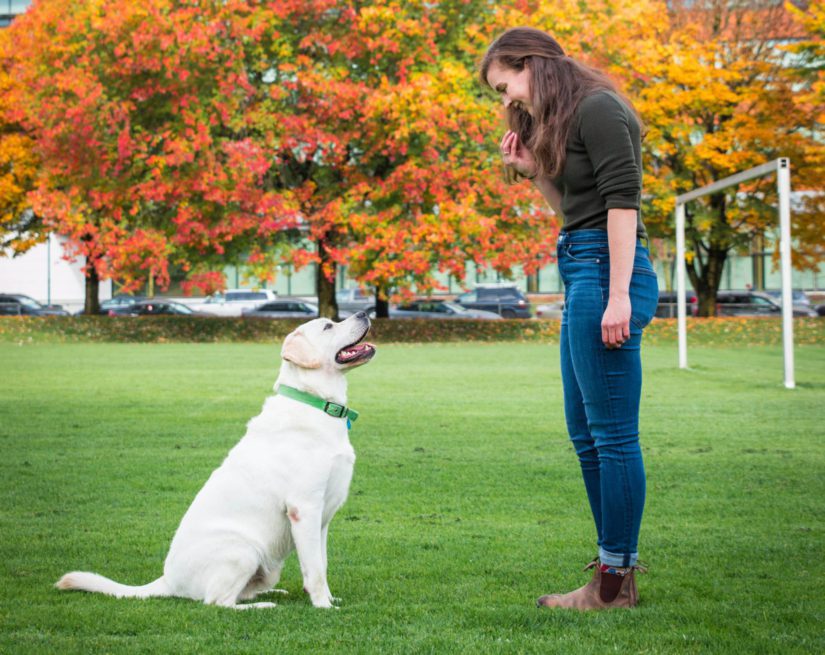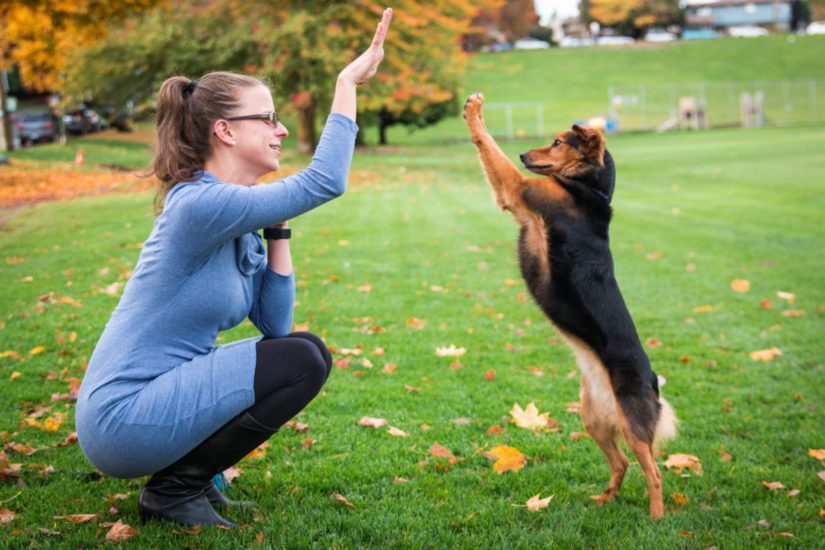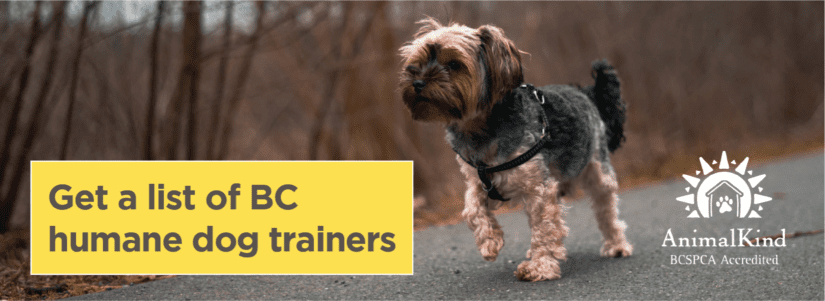We asked our AnimalKind accredited dog trainers to share what they think dogs wish their owners knew about dog training.
- What are the most common errors?
- What are some training tips that produce long-term results?

Jeanne Shaw from Love 2 Play
- Your dog doesn’t have to be able to do everything…pick a few things and get good at them. People think their dogs need to be able to sit/down/walk on a loose leash/settle on a mat and come when called, even if they don’t use these often in daily life.
Sarah Pennington from Yaletown Dog Training
- I wish that more people understood the importance of using food when training dogs. There is a belief that dogs should do things “just because”, or for praise, or petting. Unfortunately this goes against the science of animal learning. Dogs, like all animals do what works. This means that behaviours that have been reinforced are the ones the dog will do more often.
- If you stop rewarding, “paying” them for good behaviour, they will stop offering it. Positive reinforcement trainers use rewards regularly to keep a behaviour strong.
Valerie Barry from Dog Partners
- Training should always be fun for the dog and for the human. Even if you’re trying to resolve a serious problem, the training should always be positive and fun.
- Generosity is important! Use very tasty treats and lots of them to ensure much faster success and a spectacularly positive response.

Christina Young from Positive Dog
- People forget to tell their dog when they did the right thing. For example, a person asks their dog to sit. He does. While they reach into their pocket for a cookie, their dog looks around, wags his tail, maybe stands up, sniffs the grass…and then gets a cookie. He doesn’t know why he was given a cookie. Say “yes!” or use a clicker to mark when your dog does the right thing and that buys you time to dig out a cookie or toy to reward your dog.
- The biggest mistake I see people making is to ask their dog to perform a task like sit, down, or recall when the dog isn’t emotionally able to do so. If you have a fearful, overexcited, or frustrated dog, their emotional state needs to be taken care of before you ask for other behaviours.
Mick Howland from Pets Stay Home Training
- Many people don’t realize that their dog will respond better to quietly spoken cues than if “commands” are said in a loud, authoritative voice.
- It can be helpful to remind yourself that the dog is a member of your family, and through training you are helping to coach your dog to know how to fit in to the family.
Heather Fox from Proud of My Dog
‘written from the dog’s perspective‘
- If my people only understood that “consequences build behaviour” then they would realize that I’m not stupid, stubborn or dominant.
- Punishment makes me cautious, causes me to stay away or ignore requests and maybe even makes me a bit fearful.
- Reinforcement for doing good things (like sitting at the door) with something I really like (may I suggest chicken, liver or playing tug) makes learning fun for both of us.
- To increase the fun factor, my people need to find an AnimalKind accredited trainer! They will learn lots, find out how smart I really am and discover that training will build an incredible bond between us!
Get more training tips:

